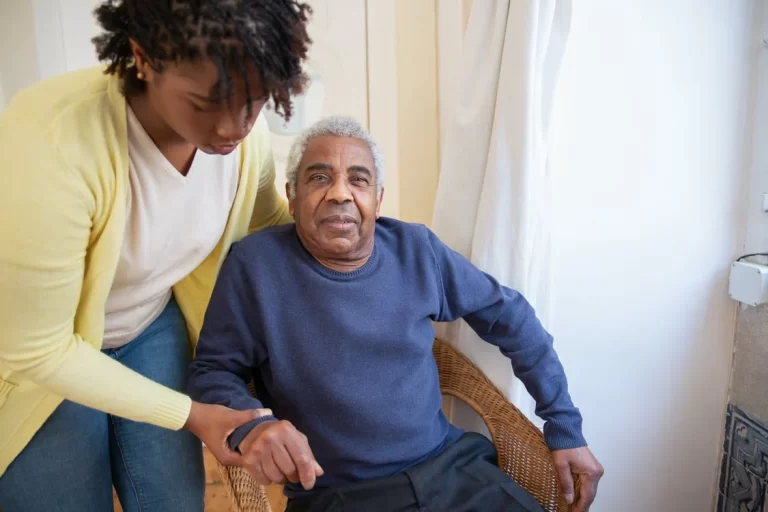How to create a flexible care plan with your home care provider
How to create a flexible care plan with your home care provider
Blog Article
The Significance of Special Needs Providers and the Influence of Home Treatment Providers
Handicap solutions are essential for enhancing the lives of individuals with specials needs. They use critical assistance that cultivates freedom and health. Home treatment service providers play an essential role in this framework by delivering personalized assistance tailored to unique demands. This assistance not just benefits individuals but additionally reduces the pressure on household caregivers. Understanding these dynamics discloses a much deeper connection between autonomy, area, and treatment. What exists in advance for these critical services and their effect?
Understanding Disability Services
While lots of may not totally grasp the complexities of disability services, they play an essential duty in improving the high quality of life for individuals with impairments. These solutions encompass a broad array of support systems designed to assist people in navigating daily difficulties. From giving access to education and learning and job opportunity to helping with healthcare and recovery, impairment services intend to promote freedom and inclusion.Key parts include situation monitoring, advocacy, and assistive innovation, which assist individuals attain personal goals. Furthermore, community-based programs usually promote social links, lowering feelings of seclusion. Different companies and federal government entities collaborate to guarantee that individuals get customized support according to their distinct requirements. Recognizing these solutions is essential, as they equip people with disabilities to lead satisfying lives, actively join their communities, and understand their potential. Inevitably, effective special needs services are fundamental to promoting equity and availability for all.

The Role of Home Care Providers
Home care service providers play a crucial function in supplying individualized assistance to individuals with handicaps, enabling them to preserve freedom in their own homes - home care provider. These professionals provide a wide variety of services tailored to satisfy the special needs of each person, making certain that support is both effective and pertinent. They aid with daily activities such as dish preparation, individual hygiene, and medication management, which are important for improving the lifestyle for those they serve.Moreover, home care suppliers act as a crucial link in between people and their medical care requires, promoting interaction with clinical experts and collaborating required solutions. Their presence also eases the concern on family caretakers, advertising a healthier dynamic within homes. By promoting a safe and encouraging atmosphere, home treatment carriers equip people with handicaps to engage with their neighborhoods, pursue individual rate of interests, and eventually lead fulfilling lives while staying in the convenience of their homes
Personalized Care and Support
Customized care and assistance are vital components of efficient home care services, as they provide to the specific requirements and choices of each person with a handicap. Home care providers assess the one-of-a-kind requirements of each client, developing tailored plans that prioritize their health, comfort, and well-being. This individualized strategy not only improves the quality of care but likewise fosters a sense of dignity and respect.Caregivers are trained to adapt their approaches, making sure that services straighten with the client's lifestyle, social history, and personal preferences. Routine interaction between caregivers and customers assists to refine treatment strategies, dealing with any kind of transforming demands promptly. In addition, the focus on customized assistance urges the development of trust and rapport, which can substantially boost the general caregiving experience. Eventually, customized care and support empower people with impairments to receive the support they require in a manner that really feels considerate and verifying.
Enhancing Independence for People
Enhancing freedom for individuals with disabilities is a basic objective within home care services. These solutions use tailored support that encourages customers to take part in day-to-day tasks autonomously (home care provider). By offering aid with individual care, movement, and house tasks, home treatment service providers make it possible for people to maintain a feeling of control over their lives. This autonomy fosters self-worth and strength, crucial components in the journey toward independence.Furthermore, home care solutions often consist of skill-building opportunities that show people flexible methods, improving their capacity to perform jobs individually. This assistance not only meets prompt needs however also promotes long-lasting self-sufficiency. Additionally, caregivers can help in developing a setting that suits private preferences and capacities, making certain that clients really feel comfy and protected. On the whole, the concentrate on boosting independence through home care solutions is significant in promoting self-respect and high quality of life for individuals with specials needs
Structure Neighborhood Inclusivity
While promoting individual self-reliance is necessary, developing area inclusivity for people with handicaps is equally vital. Inclusivity boosts social connections, permitting individuals to get involved completely in community life. Community engagement campaigns, such as awareness campaigns and comprehensive events, play a significant duty in breaking down barriers and challenging mistaken beliefs concerning disabilities.Accessible public areas and transport choices are essential components that facilitate engagement and combination. Cooperation amongst neighborhood organizations, services, and advocacy groups can produce supportive networks that encourage inclusivity. In addition, training community participants on handicap recognition promotes compassion and advertises a culture of acceptance.Ultimately, an inclusive community not only advantages people with specials click site needs but enhances the whole social textile by accepting variety. By comprehending and resolving the special demands of people with disabilities, neighborhoods can cultivate a setting where everyone has the opportunity to thrive and contribute meaningfully.
The Effect on Households and Caregivers
Numerous households and caretakers of individuals with specials needs experience an extensive impact on their everyday lives and emotional health. The duties linked with caregiving can lead to considerable physical and psychological pressure, often causing caretaker tiredness. This can lessen their ability to provide efficient support and create a nurturing setting. Furthermore, the psychological toll can bring about sensations of isolation and stress and anxiety, affecting household characteristics and relationships.Access to special needs services and home treatment carriers can reduce a few of these problems by supplying essential assistance and resources. These solutions allow households to share caregiving duties, allowing caregivers to take breaks and focus by themselves health. Enhanced assistance networks foster a sense of community, which can enhance emotional resilience. Ultimately, the presence of complete impairment solutions significantly influences households, promoting much better health outcomes and boosting the high quality of life for both caregivers and people with specials needs.
Future Trends in Handicap Services and Home Treatment
As the landscape of disability solutions and home treatment develops, modern technology integration is becoming progressively noticeable. This change permits for even more customized assistance models that cater to individual needs and preferences. By harnessing ingenious tools, carriers can boost treatment top quality and enhance results for those they offer.
Technology Combination in Treatment
The assimilation of technology in handicap solutions and home care is revolutionizing the method treatment is supplied and experienced. Advanced tools such as telehealth systems, wearable devices, and smart home systems improve availability and communication their explanation between clients and caretakers. These technologies help with real-time monitoring of health metrics, permitting timely treatments and customized treatment changes. In addition, mobile applications empower individuals with handicaps to handle their own treatment strategies and gain access to resources a lot more effectively. Automation and man-made knowledge are enhancing administrative jobs, releasing up caregivers to concentrate on giving quality assistance. As technology continues to progress, its combination within these markets guarantees to enhance outcomes, rise independence for clients, and optimize resource allowance for service providers.
Customized Support Models
While standard treatment versions frequently take on a one-size-fits-all technique, the future of disability services and home treatment is progressively leaning towards customized support models that accommodate the unique needs of each person. These versions emphasize collaboration in between treatment providers, people, and their households, making certain that solutions line up with details challenges and individual preferences. By leveraging analyses and responses, service providers can customize interventions, whether they entail daily living assistance, healing activities, or emotional support. This personalized technique not only enhances the high quality of care yet also advertises higher freedom and wellness amongst people with specials needs. As awareness of these advantages grows, customized support models are poised to become the requirement in special needs solutions and home care, transforming the landscape of care distribution.
Frequently Asked Questions
What Qualifications Do Home Care Providers Generally Required?
Home treatment providers typically require a secondary school diploma or equivalent, completion of a state-approved training program, accreditation in CPR and emergency treatment, and frequently a background check to ensure safety and security and reliability for customers.

Just How Are Special Needs Provider Moneyed and Accessed?
Handicap solutions are typically funded through federal government programs, personal insurance coverage, and gives. Accessing these services commonly involves evaluations, eligibility criteria, and applications, which differ by place and particular demands of individuals seeking help.
Can Home Treatment Providers Be Customized for Certain Disabilities?
Home care solutions can without a doubt be personalized to fulfill the distinct requirements of people with particular handicaps. This modification enables customized support, boosting the top quality of treatment and boosting the total wellness of customers.
What Are Typical Difficulties Faced by Home Treatment Providers?
Usual difficulties dealt with by home treatment suppliers include staffing scarcities, insufficient training, interaction barriers with customers and family members, varying levels of customer needs, managing insurance policy intricacies, and ensuring consistent high quality of care across different settings.
How Can Families Discover Trusted Handicap Services in Their Location?
Households can find trustworthy impairment services by looking into regional companies, getting in touch with online directory sites, seeking referrals from medical care professionals, and getting in touch with support system. Comprehensive examinations and meetings with company help ensure high quality and compatibility with needs. Customized treatment and support are necessary components of efficient home care solutions, as they cater to the individual needs and preferences of each person with a disability. By supplying assistance with individual treatment, wheelchair, and household jobs, home care companies Going Here make it possible for people to keep a feeling of control over their lives. The combination of technology in impairment services and home care is transforming the method care is delivered and experienced. While typical care versions commonly embrace a one-size-fits-all technique, the future of handicap solutions and home treatment is progressively leaning in the direction of individualized support versions that provide to the special needs of each individual. Home care services can certainly be personalized to meet the distinct requirements of individuals with certain disabilities.
Report this page